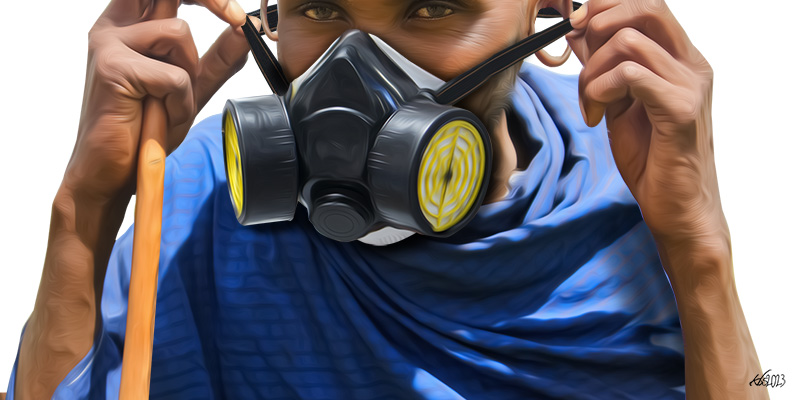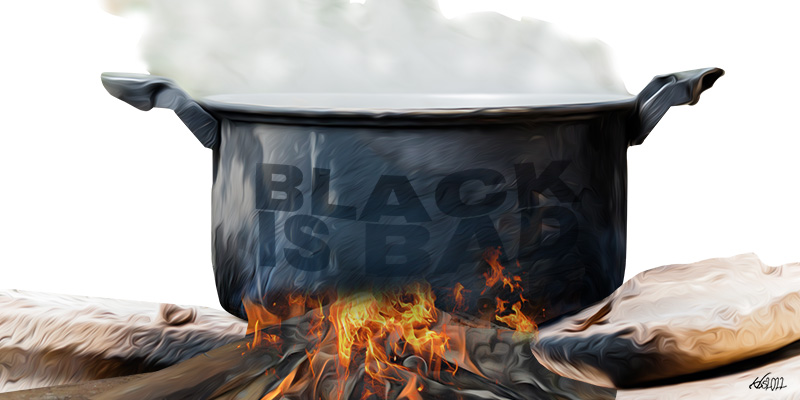Coroners – judicial officials who hold inquiries into unnatural deaths – may not seem very interesting although the Canadian TV series Coroner attracted one million viewers in its first season. A related profession, that of the medical examiner (or pathologist), who may be appointed by a coroner to examine a corpse had its own American reality show, The Medical Examiner, that ran for seven years.
The absence of a (active) coroner in Uganda was felt following the death of the hitherto unknown Michael Alinda, a moderately successful self-employed IT technician and property owner with musical aspirations and a penchant for motorbikes – a twenty-eight year old living his dream regardless of the circumstances. Michael was also a People Power activist. When he died on 4th August at Mulago National Referral Hospital with horrendous facial and other injuries – thereby gaining the name recognition that eluded him in life – his death was examined mainly on social media. There were press conferences held by the police the facts of which were refuted by another held by his siblings and their lawyers. And then there was a TV documentary. Still the death of Michael Alinda (more commonly known as Zigy Wyne) remains a mystery.
It began with his disappearance reported on social media on 22nd July and to Ganda Police post by a neighbour on 27th July, a fact supported by documentary evidence and a police reference number. By the end of the month, People Power activists were tweeting about his disappearance and sharing the information that he updated on social media. In fact, Alinda’s Facebook page shows him to have been diligent in posting news of the fall-out that followed the Arua by-election in August 2018 and the abductions that followed from that difficult time. He also posted about the loss of some land to land grabbers, stating that it was injustices such as these that lead the youth to join opposition politics.
It was only after his death on August 4th that the police became proactively involved. They issued a statement the day after, stating a post-mortem had been carried out (presumably by a medical examiner) and showed that the deceased had suffered blunt force trauma to the head that led to his death. It also revealed “defence injuries” to his fingers “arising out of a struggle”. The thread continues to say a team was being assembled to investigate the murder.
However, the very next day, the same police spokesperson stated that the police was treating the death as a fatal road accident. They said that the accident report was received on the 21st July and that this report had not been presented to the media when this inquiry was being held.
However, in the absence of inquests and the existence of a long history of abductions, torture and extrajudicial killings by the armed forces under the National Resistance Movement (NRM) government, and the People Power activists currently reported missing, it was not entirely surprising that the leader of the People Power movement, Robert Kyagulanyi (himself a survivor of said abduction, torture and near-death), should make a statement to the effect that Alinda had died following abduction and torture. The police confirmed the claim of death by homicide and at the time of writing their announcement of the post-mortem results is still on their Twitter timeline.
Under the Inquests Act of 1935, inquests are mandatory following death by road accident. Had the law been followed, the family and public would have been spared the trauma of prolonged and intense speculation, painful but necessary – essential even – in Museveni’s Uganda. The main benefit of having coroners is the judicial independence they enjoy. On his/her own initiative, s/he would have had the authority to order the medical examination of Alinda’s body to confirm or refute the conflicting reports about the condition it was in. A coroner appointed even after burial has the authority to order the exhumation of the body. This is something even favoured NRM journalists cannot pull off.
On the day of the post-mortem, Alinda’s sister, Immaculate Kiconco, spoke to the media outside the mortuary (from 00:32 to 00:48 ZIGGY WINE; Police to investigate tortured Firebase Musician’s kidnap). For the first time the public was informed of the timeline of his disappearance and discovery by his family in hospital on 29th July. On arrival she was handed a “release letter” which indicated he had been discharged on 25th July, meaning he was unattended for the intervening five days. (Not uncommon in Uganda.) In response to her doubts about removing such a seriously ill patient, she was told all he needed was to eat and take his medicine regularly. They were given a prescription.
The sister described Alinda’s body covered in burns “on different parts”. She also said she had been informed an eye was pierced. In Luganda she said it was so badly damaged it was “dead”. Unfortunately, with characteristic Ugandan inexactitude this became “eye plucked out”. The phrase gained traction and replaced anything more accurate (just as in Uganda to be sued will forever be referred to as being “dragged to court”). Whatever the case, the left eye was clearly visible in the photos of Alinda posted on social media. Apart from that the medic in question told Kiconco that her brother had arrived bleeding profusely from his middle finger.
The family sought the advice of a doctor friend who took one look at Alinda and advised them to take him to a big hospital, a Ugandan idiom distinguishing hospitals from clinics, health centres and dispensaries. They rushed him to the nearby Iran-Uganda Hospital, a modern well- equipped police facility. There the brain scans were examined and the family told immediate surgery was necessary as the injured eye was bleeding into the brain. It remains unclear why the procedure was not carried out at Iran Hospital, but they did provide a police ambulance by which the patient was transferred to the venerable missionary-founded Nsambya Hospital. Further procedures were carried out for which a large amount of money was paid and emergency surgery was again advised. After consultation, the staff and family agreed on a transfer back to Mulago.
After one night in Nsambya ICU, Alinda was re-admitted at Mulago Hospital on 30th July. There the diagnosis of Iran-Uganda Hospital was confirmed by another scan; brain surgery was necessary. Dr Muhumuza said the brain injury would have caused seizures which, in turn, could have moved to his throat, thereby choking him. This being TV and not a Coroners Court, it was not possible to have that testimony subjected to scrutiny by another expert in traumatic brain injury. Discussions about the surgery began on Tuesday 30th July, through Friday 2nd August resuming after the weekend when the doctors did not appear, and ending with Alinda’s death on the 4th of August.
The media became more interested but only NBS TV’s Canary Mugume and the NRM’s Andrew Mwenda had access to Alinda’s medical notes, and purported witnesses of the alleged accident. Mwenda was not expected to bring any sobriety to bear on the inquiry as he habitually refers to the People Power movement followers as hooligans, riff-raff and radical extremists and its leader Bobi Wine as empty-headed and other such political analyses.
Mugume was able to assemble all the witnesses at the scene (as coroners are obliged to do during inquests) and they gave more or less similar testimony – although unsworn because Mugume is not a coroner. The deceased was allegedly speeding, trying to overtake when he was dazzled by an oncoming vehicle, swerved and hit one Loy Atworo before winding up face down in a concrete culvert with his bike on his back. Slight variations include his being hit by a speeding taxi before landing in a ditch. All agree that he must have been burned by the bike although one voice says the bike fell some distance away from him. A woman pointed to a spot on the road where she says she saw Alinda’s severed fingers (she didn’t say how many). The woman victim, Atworo, was said to have been and in fact claimed to have become unconscious immediately although a first responder at the nearby clinic where both victims were allegedly taken states that she was conscious and speaking.
Uganda Radio Network attempted to speak to the “accident” eye-witnesses on the day the police disavowed the post-mortem report but failed as they had been rounded up by the police for investigations. When found a few days later, some said they had expected to be taken to CID headquarters from Kiira Road Police station but were instead driven to State House Nakasero where each was grilled about their account.
The witnesses were then driven home while repeatedly being asked if they were sure of their story. Inexplicably, this potentially damning revelation was syndicated in Mwenda’s The Independent. Mwenda himself never reconciled his own version of events with the police version. He has a different day on which Alinda was found by his family – the 24th and not the 27th. The family insists it was on the 29thth.
His timeline allows Mwenda to state the cause of death was failure to take prescribed anti-seizure medicines “when he was home”. However, there is no point at which Zigy was at home and out of the care of one of three hospitals except while in transit. His claims are based on Mwenda’s interview with Dr Muhumuza, the neurosurgeon who treated the deceased and to whom, like Canary Mugume, he had access. Nsambya Hospital staff observed protocol and declined to discuss the deceased with the media without a court order; only a coroner could have summoned and compelled them to give evidence.
Canary Mugume’s second in-depth coverage of the story alone makes the urgent case for the appointment of a coroner. It has a number of serious omissions, each tending to strengthen the claims of the State and to cast aspersions on the family, friends and political allies of Alinda.
Most glaringly, the NBS Special Report aired on 13th August does not reconcile the conflicting discharge dates; it does not investigate who attended to Alinda between his discharge on the 25th of July and his transfer four days later. The omission has a bearing on the claim that he died from not taking his prescribed drugs.
Furthermore, the reason he did not receive surgery between his re-admission and his death four days later is not probed. Effort is not made to resolve the issue of the post-mortem report but rather is invested in trying to prove the family has no evidence to back up its claims except the undated Mulago out-patients department form indicating TBI (traumatic brain injury), which was displayed at their press conference. One would have expected NBS to point out that the family said at the same presser (which NBS attended three days before the broadcast) that they did have a post-mortem report that was read out at the funeral, as well as snapshots of the Discharge Form dated 25th July and other documents. NBS completely avoids any mention of Iran-Uganda Hospital and the treatment and diagnosis given there. It does not include the very first report alleging an accident given by an unnamed police source to BBC journalist Alan Kasujja stating that one finger was completely severed and another was hanging off.
What did most to undermine the credibility of #NBSSpecialReport was the manner in which it included a clip from the family press conference. The clip was presented with the NBS watermark as though it were part of their work. The fact is the media house only contacted the family after People Power activists challenged Mugume to do so before airing his much-advertised documentary. It was probably this that caused the 24-hour delay in the broadcast.
In the clip, Kiconco repeated the statement she made outside the mortuary nearly a week earlier; that her brother’s eye was so badly damaged it could not be saved. Which is neither “plucked out” (People Power) nor “intact” (Police). However, NBS created the impression that Mugume had caught the family in a lie. Alinda’s family has been publicly warned by the police to desist from withholding information from them and misleading the public with false information. On their part, the family plans to file suit against the police for defamation and against Mulago Hospital for negligence. They also plan to apply to the High Court for the institution of an inquest.
Uganda Police’s conflicting statements, along with their inability to explain how they concluded in the first instance that death was by homicide, only deepened existing public distrust. The “eye-witnesses” are widely believed to have been coached, especially during their visit to State House.
Following a Police announcement that hospital CCTV record had been obtained and was being “restored” at police headquarters, it took eleven days for them to actually produce footage allegedly of the deceased being brought to the hospital by good Samaritans. On examination, the first segment captured in traffic outside the hospital on the date in question shows two or three riders of a boda boda dressed in pale-coloured trousers. The second captured at the hospital gate gives a shot highlighted by the police of three persons on a boda boda. The middle passenger is a lady in a red dress. She sits erect and although she is helped off the bike, she is able to support herself as she enters the hospital. It is date-stamped 1st July 2019, three weeks before Michael Alinda was reported missing.
The laxity only reinforces the belief that he was dumped at Mulago by his torturers the way Francis Zaake MP was dumped at Lubaga Hospital with eye and finger and facial injuries following his abduction in Arua in August 2018.
All parties concerned could have been protected from speculation and injustice had there been an inquest – a public hearing with sworn testimony, named witnesses and an official record. Justice would have been served because written eyewitness statements would have been given in advance to designated interested parties.
Uganda is not alone in this predicament; the Tanganyika Law Society called for the reinstitution of coroners courts in Tanzania after the death of journalist David Mwangosya when police opened fire on a demonstration in 2012. Rather than appoint a coroner, the Ministry of Justice formed a commission of inquiry on which the police were given a seat.








